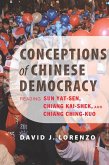Why do certain militaries brutally suppress popular demonstrations, while others support the path to political liberalization by backing mass social movements?Although social movements and media can help destabilize authoritarian governments, not all social protest is effective or culminates in the toppling of dictatorships. Frequently, the military's response determines the outcome. In Defect or Defend, Terence Lee uses four case studies from Asia to provide insight into the military's role during the transitional phase of regime change. Lee compares popular uprisings in the Philippines and Indonesia-both of which successfully engaged military support to bring down authoritarian rule-with protest movements in China and Burma which were violently suppressed by military forces. Lee's theory of "e;high personalism"e; and power-sharing among the armed forces leadership provides a framework for understanding the critical transitory phases of democratization. He uses this theory to review and assess Eastern Europe's democratization events in 1989, the Colored Revolutions of the early 2000s, and the protests and revolutions unfolding in the Middle East. This book will appeal to students and scholars of comparative politics, Asian studies, security studies, and international relations, as well as defense policymakers.
Dieser Download kann aus rechtlichen Gründen nur mit Rechnungsadresse in A, B, BG, CY, CZ, D, DK, EW, E, FIN, F, GR, HR, H, IRL, I, LT, L, LR, M, NL, PL, P, R, S, SLO, SK ausgeliefert werden.









